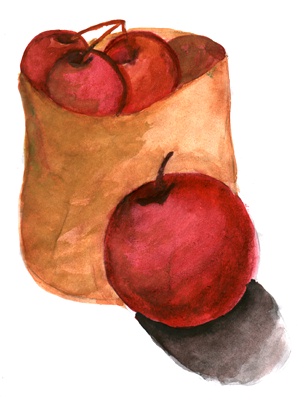All Nonfiction
- Bullying
- Books
- Academic
- Author Interviews
- Celebrity interviews
- College Articles
- College Essays
- Educator of the Year
- Heroes
- Interviews
- Memoir
- Personal Experience
- Sports
- Travel & Culture
All Opinions
- Bullying
- Current Events / Politics
- Discrimination
- Drugs / Alcohol / Smoking
- Entertainment / Celebrities
- Environment
- Love / Relationships
- Movies / Music / TV
- Pop Culture / Trends
- School / College
- Social Issues / Civics
- Spirituality / Religion
- Sports / Hobbies
All Hot Topics
- Bullying
- Community Service
- Environment
- Health
- Letters to the Editor
- Pride & Prejudice
- What Matters
- Back
Summer Guide
- Program Links
- Program Reviews
- Back
College Guide
- College Links
- College Reviews
- College Essays
- College Articles
- Back
Does a High Protein Diet Increase the Chance of Cancer?
People under the age of 65 that consume high portions of meat, eggs and dairy are four times more likely to get cancer rather than the average person, according to a study published by Cell Metabolism. Cell Metabolism is a leading publisher of bio-medical research and reviews to help engage the scientific community by publishing important and interesting discoveries to impact the future of research.
In an article called “Low Protein Intake Is Associated with a Major Reduction in IGF-1, Cancer, and Overall Mortality in the 65 and Younger but Not Older Population” by Cell Metabolism, scientists claim that in a study done in 50-65 year olds who have a high animal-derived protein diet had a 75% increase on the risk of tumors. Valter Longo, a director in the University of Southern California who skips lunch to control his calorie and protein intake, stated that peoples diet should be 9 to 10 percent protein only. Peter Emry, the head of nutrition and dietetics at King’s College London, urges general caution when reading about observational studies and eliminating specific nutrients. Gunter Kuhnle, a food nutrition scientist at Reading University believes it is wrong and potentially even dangerous to compare the negative effects of smoking cigarettes with consuming red meat and dairy.
Heather Ohly, vegan and nutritionist at the European Centre for Environment and Human Health from Exeter, a city in England, stated that “Smoking has been proven to be entirely bad for us, whereas meat and cheese can be consumed in moderation as part of a healthy diet, contributing to recommended intakes of many important nutrients.”
However to turn the tide in this discussion, Chris Masterjohn, a nutritional science expert and blogger, claims that without consuming animal-derived protein, we would be lacking nutrients such as zinc. “I believe the main reason animal foods are important in the diet has less to do with protein itself and more to do with micro nutrients”.
Despite that, Ohly revealed that “It is completely possible to obtain all of the nutrients we need without eating any meat. I have been a committed vegetarian myself for over 20 years. However, it is important to maintain a well-balanced diet and eat a variety of plant foods to ensure adequate intakes of protein, iron, B vitamins etc.”
Susan Levin, a dietitian at PCRM, believes that eliminating meat out of your diet would not cause any harm on our health. However, if we eliminated all animal products, like dairy and eggs, we would need to take a B12 supplement. “More importantly, however, you would be eliminating dietary cholesterol, which you do not need, and a large percentage of saturated fat intake. There is no dietary requirement for either cholesterol or saturated fat, and both are linked to chronic diseases such as heart disease.”
In a debate aired on NPR and PBS called “Don’t Eat Anything With A Face”, Dr. Neal Barnard and Gene Baur were for this motion. Chris Masterjohn and Joel Salatin were against this motion. Neal Barnard stated in this debate that not all meat-eaters obtain all of the nutrients they need, and suggests having a vegetarian diet. “And meat-eaters actually have very poor nutrition. Yes, they get protein, but they don’t get many vitamins, they don’t get any complex carbohydrates, they’re missing fiber. A vegetarian diet gives you all the protein you’re going to need, plus many more vitamins,
many more minerals” said Bernard.
Chris Masterjohn later gave his personal story of when he decided to become a vegetarian when he was 18, hoping to be more healthful and happy. “A year and a half down the road, it became clearer and clearer that my dietary journey through vegetarianism and veganism was failing to bring me into any promised land of vibrant health. Many pre-existing health problems, that had mostly been a nuisance to me in the past, devolved into burdens that crippled my day-to-day function. My digestion worsened, my energy tanked, and my irritability skyrocketed.”
However, Longo stated that “there is no harm in eating the way our grandparents used to eat”. To help convince others to reduce protein consumption, he used an example of Salvatore Caruso, who is now 108, and known as the second oldest man living in Italy. He maintained a low-protein and plant-based diet for the majority of his life, but then switched that after becoming a bit more frail. In a experiment, Longo decided to study the effects of protein in middle aged people. Blood tests on them showed that protein controls a growth hormone, IGF-1, (Insulin receptor) which rose and decreased with the amount of the persons protein intake. IGF-1 is similar to insulin in its molecular structure, and it plays a very important role in childhood growth. For the people who had a high protein diet, the rises in this specific hormone increased their risk of cancer. Basically, more meat means that the IGF-1 levels rise, which can contribute to tumors, according to the study.

Similar Articles
JOIN THE DISCUSSION
This article has 0 comments.
